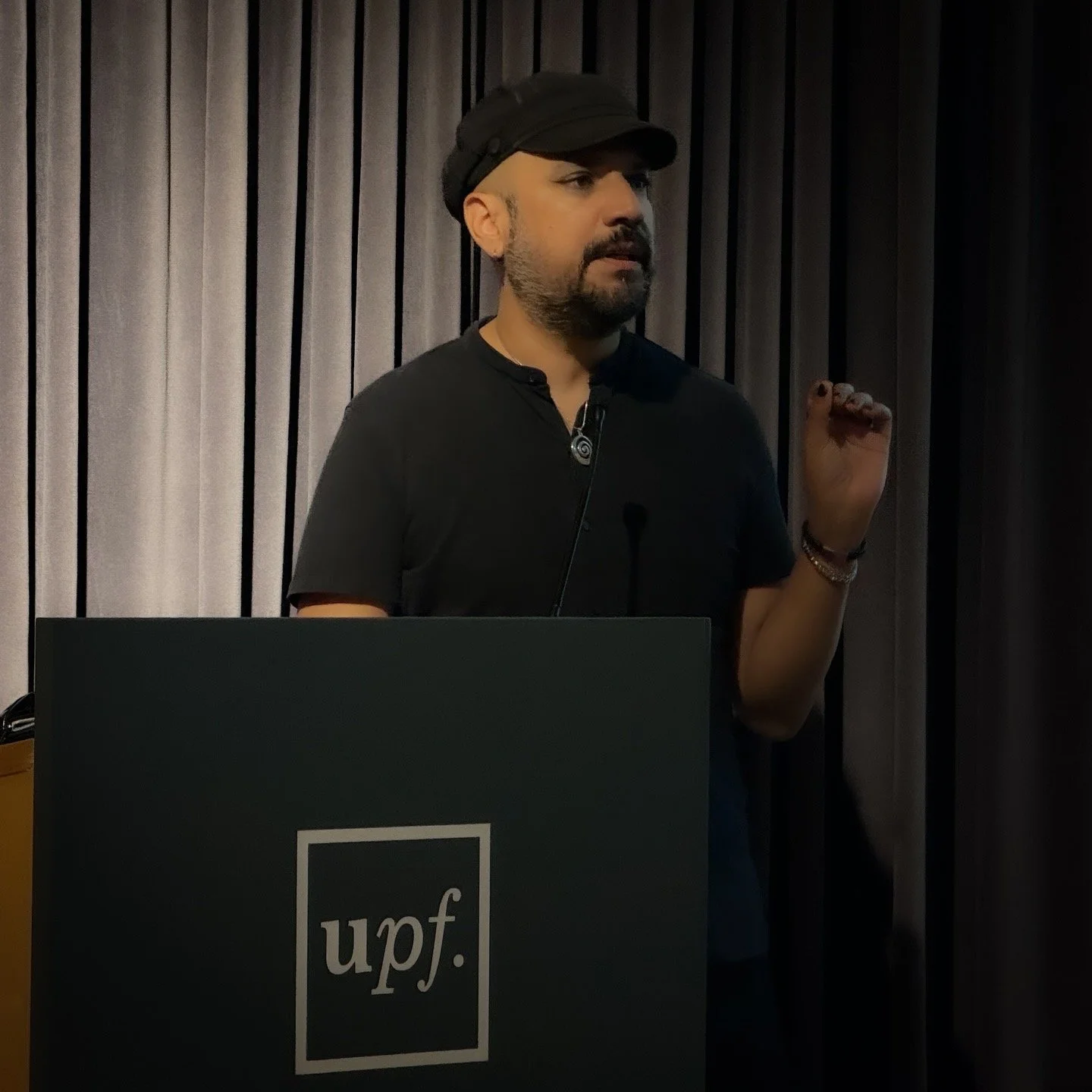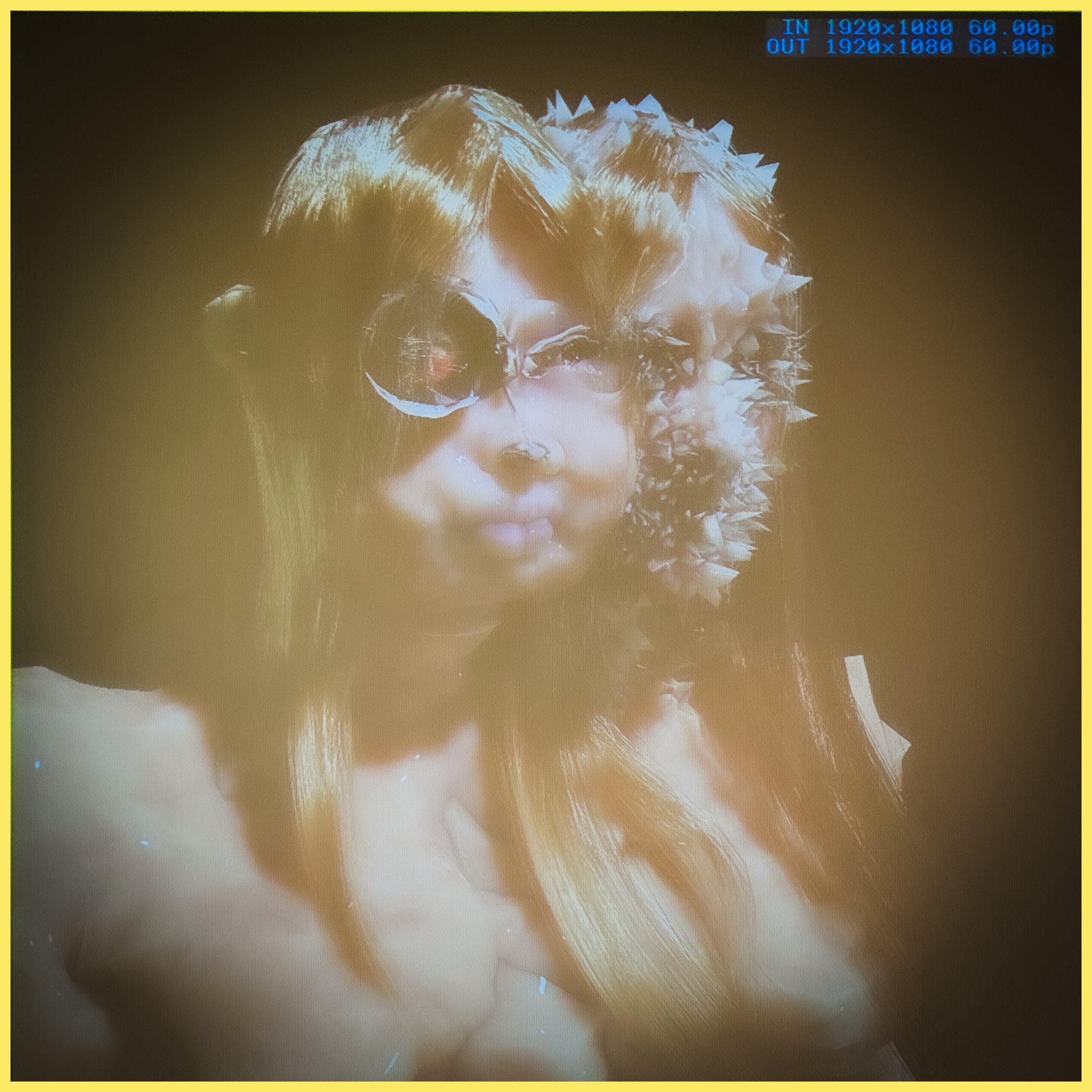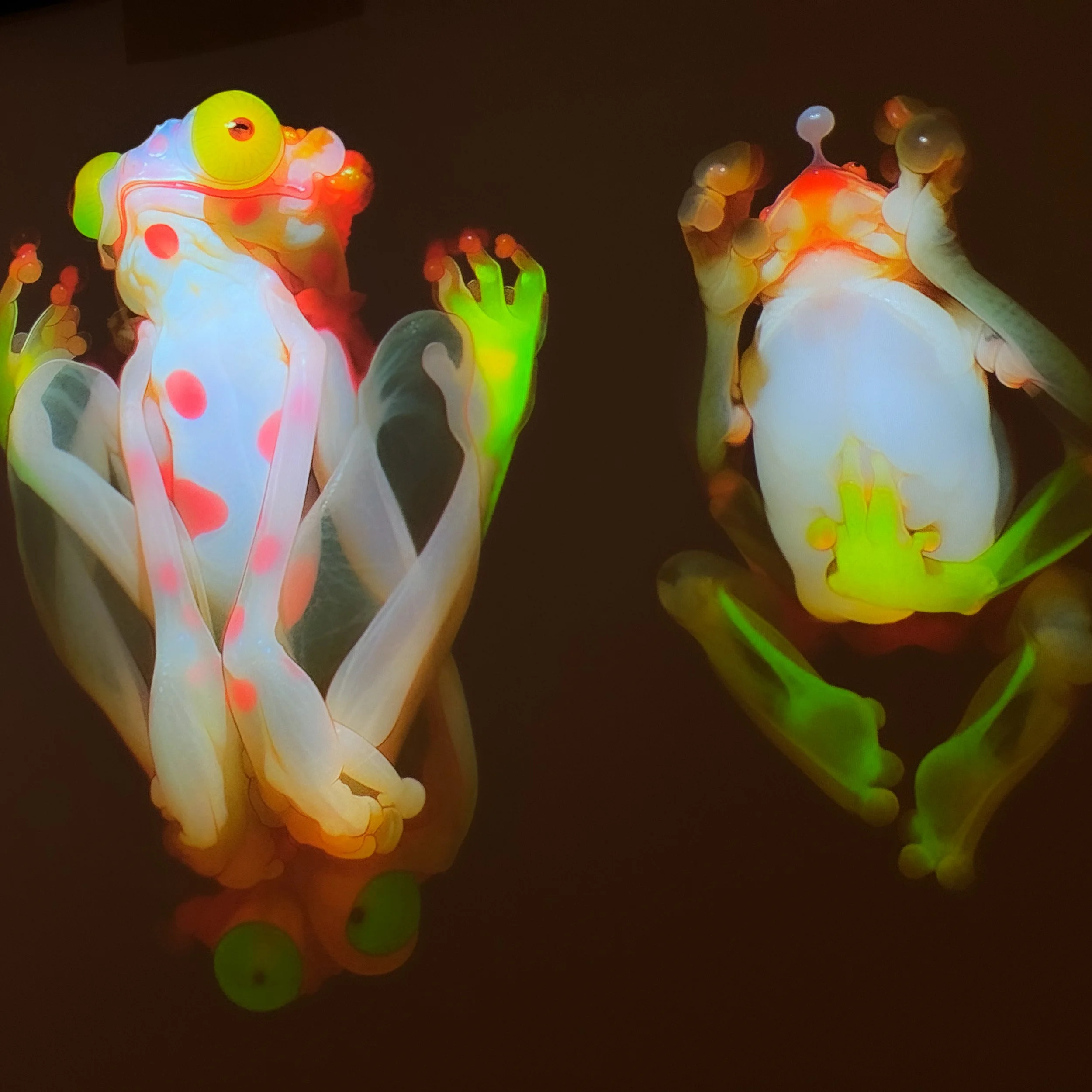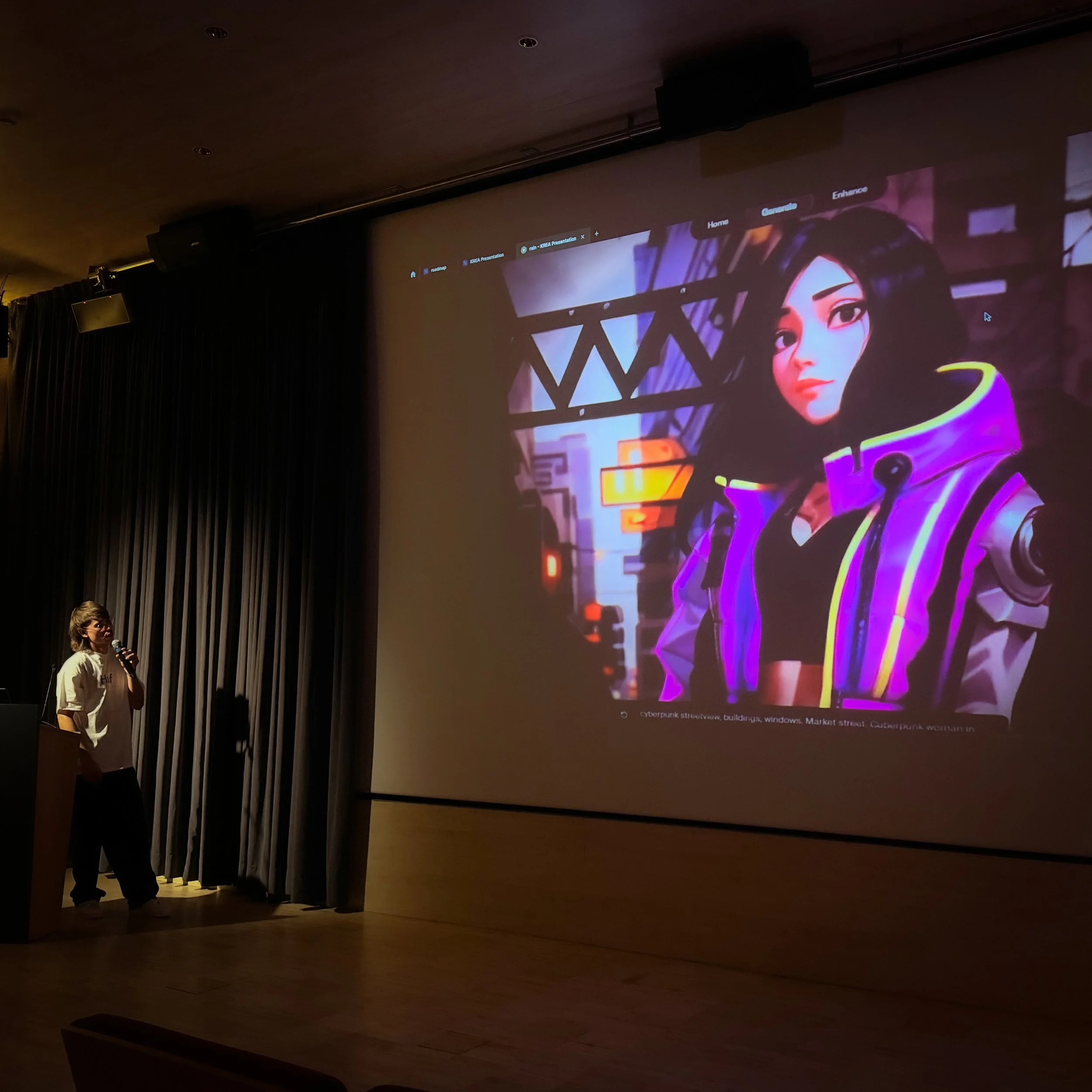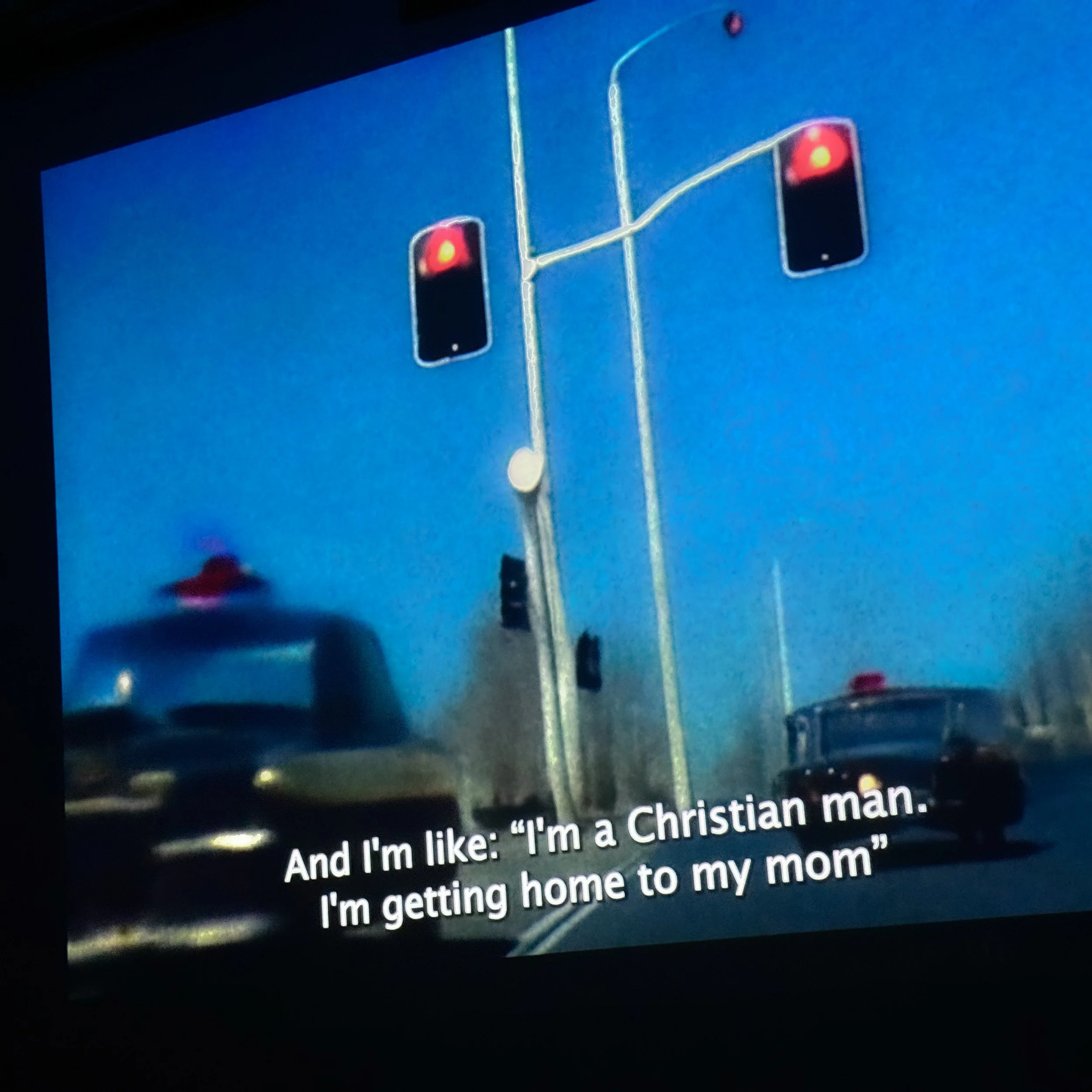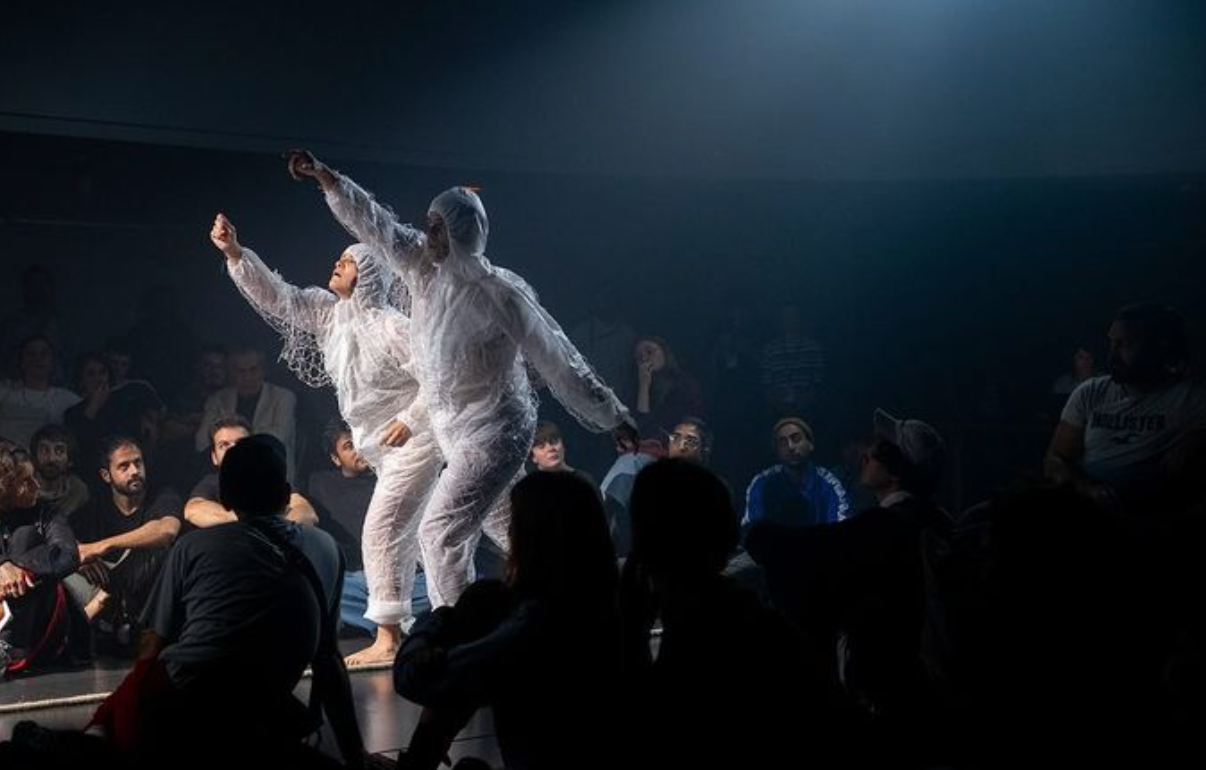+RAIN Film Festival 2024: Exploring the Intersection of Creativity and AI
The second edition of the International Festival of Film and Artificial Intelligence, +RAIN Film Festival, has once again brought together the most outstanding profiles in research, experimentation, and film creation using AI. +RAIN focuses on research, aesthetic and narrative experimentation, and the integration of generative AI in multimedia and digital creation processes. The festival is organized by Universitat Pompeu Fabra and Sónar +D Festival.
Research, Narrative, Ethics, and Generative AI Industries
After welcoming remarks by Vanesa Daza, Vice Rector of Knowledge Transfer at UPF, and Vladimir Estivill, Director of the UPF Department of Communication, the first day of talks delved into research, narrative, ethics, and the generative AI industries.
The keynote speaker, Shyam Sundar, Professor of Media Effects at Penn State University, presented the paper “Rethinking Cinema in the Age of Artificial Intelligence,” exploring how AI can create new narratives and enhance storytelling in cinema.
Marcelo Bertalmío, a research scientist at the Institute of Optics at CSIC, introduced “Vision Models for Cinema,” discussing how the industry can adapt to create unpredictable narratives. Christian Canton, Head of Responsible AI at Meta, presented “Creativity and AI for Positive Outcomes,” emphasizing the potential for AI to produce beneficial and innovative results. A central highlight was the keynote by Carlos Castillo, ICREA Research Professor at UPF, who addressed the risks of discrimination in AI, particularly regarding its use in predicting homelessness, crime, and success prospects.
Rachel Falconer, Head of Digital Arts Computing at Goldsmiths, University of London, presented “INTRA_ Narrative Contingencies, Transmuted Worldbuilding, and Expanded Attitudes to AI and Authorship,” showcasing works by artists like Xinde Ren who use AI to create abstract representations of emotions. The first day offered a balanced perspective on the positive and negative impacts of AI in the creative industry and its potential for social control. In terms of social control, the use of AI extends beyond creation and into the realms of surveillance and influence. AI tools can be used to analyze and predict human behavior, raising ethical questions about privacy and autonomy.
Overall, the keynote presentations on the first day highlighted these dual aspects of AI in the creative industry. While celebrating the innovative possibilities, participants also emphasized the need for ethical guidelines and responsible use of AI to ensure that it serves the public good without compromising individual freedoms. These talks served as a platform for exploring how AI can enhance creativity while also addressing the critical issues of social control and ethical responsibility in the digital age.
+RAIN Film Festival Competition
The afternoon was dedicated to screenings the Official International Competition Section, featuring films such as "DUCK" (2023), "Ripear un desierto" (2024), "Fried Egg" (2024), "Skopje 2014 According to ChatGPT" (2023), "Sueño finlandés y paranoico" (2024), "Time Metallurgist" (2024), "When People Talk About Their Dead, They Look Up" (2024), "Home Age to Avalokitesvara" (2023), "512X512" (2023), and "Morbo" (2024). These films, created with generative AI, showcased the diverse range of human creativity driving AI prompts, resulting in works that were intriguing, beautiful, astonishing, funny, and sometimes banal.
The post-screening discussion featured filmmakers Rachel Maclean, Felipe Elgueta, Rucha Thigale, Pauline Blanchet, Jimena Aguilar, Tomáš Rampula, Anna Halbleib, Maria Than, Joris Mezouar, and Jonas Sanson. They shared insights into the techniques, inspirations, and methods of using generative AI to build new narratives, revealing how they harness AI to push creative boundaries, experiment with innovative storytelling forms, and blend human creativity with machine intelligence to produce unique and compelling films.
Frames from the movies in competition: Morbo by Jonas Sanson; Sueño finlandés y paranoico by Jimena Aguilar; DUCK by Rachel Maclean and Fried egg by Rucha Thigale.
A Day Dedicated to Showcasing Industry Opportunities
The second day of +RAIN featured presentations from startups and young professionals developing business ideas with generative AI. Highlights included the project “To Be Loved,” by filmmakers Carme Puche and Sergio Álvarez-Napagao, which explores post-memory through family archives and AI. Andrés Bartos and Lucija Stojevic examined AI's role in Holocaust memory, while Claudio Celis Bueno drew parallels between 18th-century industry and today's tech-driven world.
The presentation of the winning work from the “SOLO Collection” was a notable event, featuring the screening of a film created with audio archive files and AI by artist Gregor Petrikovic, offering a sensitive and astonishing experience. Since 2016, Petrikovic has collected audio recordings, capturing conversations with friends, partners, and acquaintances, resulting in an extensive archive of dialogues, monologues, and voice notes from diverse characters. Using only basic equipment and iPhone voice notes, he avoided unnecessary nostalgia. The film centers on a multitude of voices, inviting various personas into a dialogue that intertwines with physical forms, movements, and gestures, allowing the characters to exist within the film while surpassing its formal boundaries.
Jordi Pons showcased the "Reinventing How We Create Content" with Stable Audio, an innovative tool that leverages AI-generated prompts to create audio files. He demonstrated how this tool can streamline the audio production process, allowing creators to generate high-quality soundscapes and music tracks efficiently. This technology opens up new possibilities for sound design and audio storytelling, making sophisticated audio creation accessible to a wider range of artists and producers.
The final keynote by Victor Pérez and Boldtron from Krea.AI highlighted another groundbreaking tool designed to help artists achieve complex and creative aspirations. They discussed how Krea.AI provides advanced AI-driven solutions for visual and multimedia art, enabling artists to push the boundaries of their creative practices. By integrating AI into their workflows, artists can experiment with new forms of expression, automate intricate tasks, and bring to life imaginative concepts that were previously unattainable. This keynote underscored the transformative potential of AI in empowering artists to explore uncharted creative territories.
AI Installations and Performances
In addition to the conferences, the festival featured AI-generated music, audiovisual works, and installation performances, showcasing how AI is revolutionizing art performance. Notable installations included MMM [dual Markov beat] from the Meta Music Machines series by Óscar Martín, which used AI to generate complex musical patterns that evolved in real-time, creating an ever-changing soundscape. This installation highlighted AI's ability to introduce unpredictability and spontaneity into musical performances.
Live performances also demonstrated the innovative use of AI in creating immersive and interactive experiences. Citlali Hernández and Jon James's "Decolonizing Patterns" explored themes of cultural identity and heritage through AI-generated visual and audio patterns, offering a dynamic and thought-provoking performance. Nicola Privato's "Mouja" used AI to manipulate live sound and visual elements, producing a constantly shifting audiovisual experience that captivated the audience. Blazej Kotowski's "Disturbance: Deconfiguration" employed AI algorithms to deconstruct and reconfigure audio-visual materials in real-time, creating an atmosphere of controlled chaos and highlighting the potential of AI to transform traditional performance art.
These performances underscored AI's ability to enhance artistic expression by introducing new creative possibilities and expanding the range of sensory experiences available to audiences. By using AI to generate unique atmospheres, sensations, and audio textures, artists are able to push the boundaries of traditional art forms and create performances that are not only innovative but also deeply engaging. The unpredictability of AI adds an element of surprise and novelty, ensuring that each performance is a unique experience. This integration of AI into art performance represents a significant shift in how art is created and experienced, emphasizing the collaborative potential between human creativity and machine intelligence.
Foto by +RAIN Film Festival
FAIR: A Space for Professional Connection
The third day focused on professional connections between creators, software developers, producers, and companies in the multimedia, digital art, and technology industries, will take place at Sónar +D at the Fira Montjuïc.
FAIR promised to be a space for reflection, debate, and exchange, bringing together international experts to address the challenges and opportunities in multimedia, digital art and storytelling during the generative AI era. Participants include filmmakers, AI researchers, software developers, legal experts in copyright, ethics specialists, and audiovisual sector producers and companies.
In conclusion, the +RAIN Film Festival 2024 served as a testament to the transformative power of AI in the creative arts. From film production to art performance, AI's influence was palpable, opening up new avenues of exploration and pushing the boundaries of artistic expression. The festival showcased not only the remarkable achievements made possible by AI but also raised important questions about its impact on creativity, originality, and societal dynamics. As technology continues to evolve, the intersection of AI and the arts promises to be a fertile ground for innovation, collaboration, and reflection. The festival provided a glimpse into this exciting future, highlighting the immense potential of AI to inspire, challenge, and reshape our understanding of art and culture. As we navigate this rapidly changing landscape, it is imperative that we approach AI with both enthusiasm and critical scrutiny, ensuring that it remains a force for positive change in the creative realm.
Research, Narrative, Ethics, and Generative AI Industries
Frederic Guerrero-Solé, Coloma Ballester, Directors of the RESEARCH section, alongside Rachel Falconer, Head of Digital Arts Computing at Goldsmiths, University of London.
+RAIN Film Festival is organized by Pompeu Fabra University, the Chair in Communication Futures, and Sónar +D, with collaboration from the Audiovisual Cluster of Catalonia.



